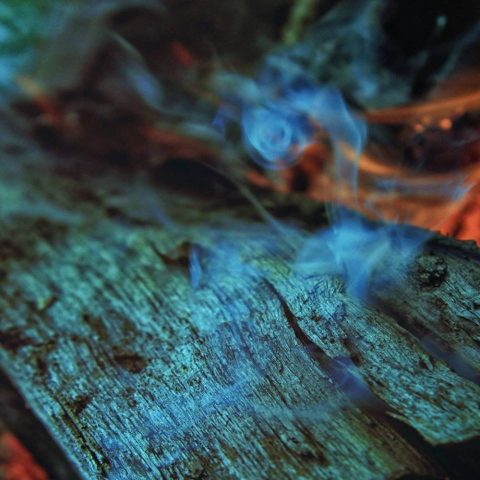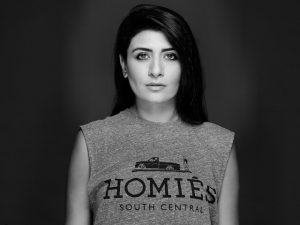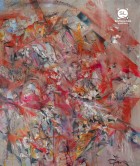First let me say how much I enjoyed the way this story subverts the idea of what a story is and points directly at the interaction between words and reader starting from the title itself. Naturally, my question is: What do you think makes a story a story?
Thank you! I have no idea what makes a story a story, but I’m extremely interested in that question and I feel like I’m always asking myself that in my work. I always tell new writers that a story has to have either: interesting characters, an interesting plot, or an interesting setting. It does not have to have all three, or even two of those, to my mind. I think about reading letters to advice columnists – there’s a story right there! Or overhearing a conversation—that’s a story. If you don’t believe setting can be a story, real Invisible Cities. So to me, I’m always trying to examine what makes a story a story while telling a story. The language interrogates the story, and often the reader.
This story creates the idea of a utopia in negatives. Can you talk about your intent in choosing this way of telling and what effect you were looking to achieve?
I was on the garbage Internet and feeling like garbage as a result, so I started writing this piece to sooth myself. It wasn’t going to turn into anything; it was just a writing exercise. And then I realized that I could write a utopia (yes, good word!) through taking all the horrible things and twisting them. And then I realized I could turn it into a story by making it move from the general to the specific, and back again.
The voice in this piece is strong. Can you talk about why you chose the second person and also whether you have a favorite point of view and why?
I initially started writing this in second person because I was maybe going to turn it into a Twitter thread or something and so the “you” made sense. And then when I turned it into a story, the “you” still made sense because the narrator is so obviously traumatized that she’s distancing herself from the things that have happened to her; she’s dissociated them into an other, a “you.” I don’t truly have a favorite POV—I use them all when the story calls for them—but I think I probably use third person more than any other, because I love me some back story, and you can’t really get that with first or second person. Second person, by the way, has such a bad rap, but I don’t know why. There are certainly terrible stories written in second person—but there have to be way more terrible stories written in first and third POV. For me, second person POV tends to be the only voice that works in certain pieces, like this one.
Do you think things are really that terrible? Do writers have a responsibility to tackle the social and terrible in their work?
I mean, I do, yes—Trump is destroying the country and his ilk are destroying the planet, and that’s pretty terrible. I absolutely think writers have a responsibility to do this; I just wrote an ecohorror story, for example, because I was tired of avoiding climate change in my work. I think it’s less about writers being propaganda voices, and more about writers being honest. Climate change is so firmly part of the world and worryscape of Millennials and Gen Z that it feels dishonest to never touch it in contemporary fiction, for example. And if all the characters in your books happen to be wealthy white people, then you’re not being honest about structural racism and the struggles people of color have in this country. To never touch the social and terrible means you’re basically upholding the status quo, in a way. It doesn’t make you a bad writer or bad person, but in times like these, I prefer to be on the side of good. Well, I’m chaotic good, but still good.
I am fascinated by the goddess Innana from the Sumerian mythology. Which goddess in which mythology do you relate to or admire most and why?
Oh so many, but I think my favorite has always been Bastet, the Egyptian goddess. She could be very domestic and kind, but she had various names and guises, including The Lady of Slaughter and The Lady of Dread, and she was an avenger, a feline defender of the innocent and avenger of the wronged. She was kind of like an early Catwoman.




 The SmokeLong Grand Micro Contest (The Mikey) is now an annual competition celebrating and compensating the best micro fiction and nonfiction online.
The SmokeLong Grand Micro Contest (The Mikey) is now an annual competition celebrating and compensating the best micro fiction and nonfiction online.